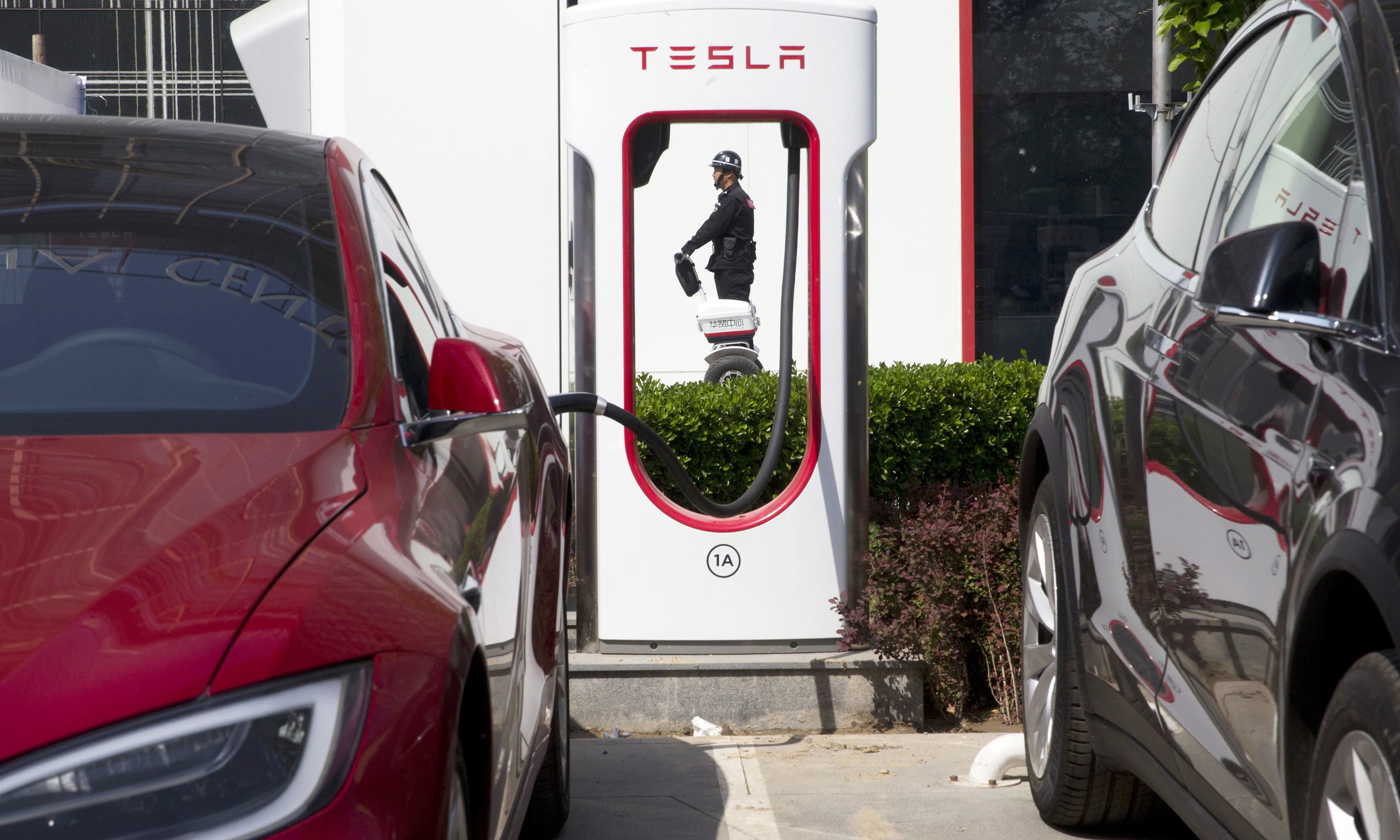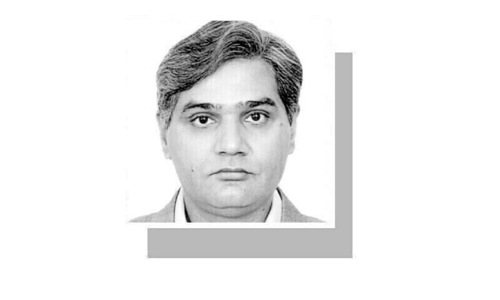When Shan Junhua bought his white Tesla Model X, he knew it was a fast, beautiful car. What he didn't know is that Tesla constantly sends information about the precise location of his car to the Chinese government.
Tesla is not alone. China has called upon all electric vehicle manufacturers in China to make the same kind of reports potentially adding to the rich kit of surveillance tools available to the Chinese government as President Xi Jinping steps up the use of technology to track Chinese citizens.
“I didn't know this,” said Shan. “Tesla could have it, but why do they transmit it to the government? Because this is about privacy.”
More than 200 manufacturers, including Tesla, Volkswagen, BMW, Daimler, Ford, General Motors, Nissan, Mitsubishi, and US-listed electric vehicle start-up NIO, transmit position information and dozens of other data points to government-backed monitoring centres, The Associated Press has found. Generally, it happens without car owners' knowledge.
The automakers say they are merely complying with local laws, which apply only to alternative energy vehicles. Chinese officials say the data is used for analytics to improve public safety, facilitate industrial development and infrastructure planning, and to prevent fraud in subsidy programs.

But other countries that are major markets for electronic vehicles in the United States, Japan, across Europe do not collect this kind of real-time data.
And critics say the information collected in China is beyond what is needed to meet the country's stated goals. It could be used not only to undermine foreign carmakers' competitive position, but also for surveillance particularly in China, where there are few protections on personal privacy.
Under the leadership of Xi Jinping, China has unleashed a war on dissent, marshalling big data and artificial intelligence to create a more perfect kind of policing, capable of predicting and eliminating perceived threats to the stability of the ruling Communist Party.
There is also concern about the precedent these rules set for sharing data from next-generation connected cars, which may soon transmit even more personal information.
“You're learning a lot about people's day-to-day activities and that becomes part of what I call ubiquitous surveillance, where pretty much everything that you do is being recorded and saved and potentially can be used in order to affect your life and your freedom,” said Michael Chertoff, who served as Secretary of the US Department of Homeland Security under President George W Bush and recently wrote a book called “Exploding Data.”
Chertoff said global automakers should be asking themselves tough questions. “If what you're doing is giving a government of a more authoritarian country the tools to have massive surveillance, I think then companies have to ask themselves, 'Is this really something we want to do in terms of our corporate values, even if it means otherwise forgoing that market?'”

A bigger brother?
The Shanghai Electric Vehicle Public Data Collecting, Monitoring and Research Centre sits in a grey tower in suburban Jiading district. One floor up from the cafeteria, a wall-sized screen glows with dots, each representing a single vehicle coursing along Shanghai's roads to create a massive real-time map that could reveal where people live, shop, work, and worship.
Click a dot at random, and up pops a window with a number that identifies each individual vehicle, along with its make and model, mileage and battery charge.
All told, the screen exhibits data from over 222,000 vehicles in Shanghai, the vast majority of them passenger cars.
“We can provide a lot of data from consumers to the government to help them improve policy and planning,” said Ding Xiaohua, deputy director of the centre, a non-profit that is tightly aligned with and funded by the government.
According to national specifications published in 2016, electric vehicles in China transmit data from the car's sensors back to the manufacturer. From there, automakers send at least 61 data points, including location and details about battery and engine function to local centres like the one Ding oversees in Shanghai.
Data also flows to a national monitoring centre for new energy vehicles run by the Beijing Institute of Technology, which pulls information from more than 1.1 million vehicles across the country, according to the National Big Data Alliance of New Energy Vehicles. The national monitoring centre declined to respond to questions.
Those numbers are about to get much bigger. Though electric vehicle sales accounted for just 2.6 percent of the total last year, policymakers have said they'd like new energy vehicles to account for 20 percent of total sales by 2025.
Starting next year, all automakers in China must meet production minimums for new energy vehicles, part of Beijing's aggressive effort to reduce dependence on foreign energy sources and place itself at the forefront of a growing global industry.
The Chinese government has shown its interest in tracking vehicles.
“The government wants to know what people are up to at all times and react in the quickest way possible,” said Maya Wang, a senior China researcher for Human Rights Watch. “There is zero protection against state surveillance.”
“Tracking vehicles is one of the main focuses of their mass surveillance,” she added.
Last year, authorities in Xinjiang, a restive region in western China that has become a laboratory for China's surveillance state, ordered residents to install GPS devices so their vehicles could be tracked, according to official media. This summer the Ministry of Public Security, a police agency, began to roll out a system to track vehicles using windshield radio frequency chips that can identify cars as they pass roadside reading devices.
Ding insisted that the electric vehicle monitoring program is not designed to facilitate state surveillance, though he said data could be shared with government public security organs, if a formal request is made. The centre said it has not shared information with police, prosecutors or courts, but has used the data to assist a government investigation of a vehicle fire.
There is a privacy firewall built into the system. The monitoring centre has each car's unique vehicle identification number, but to link that number with the personal details of the car owner, it must go through the automaker a step it has taken in the past. Chinese law enforcement can also independently link the vehicle identification number with the car owner's personal information.

















































